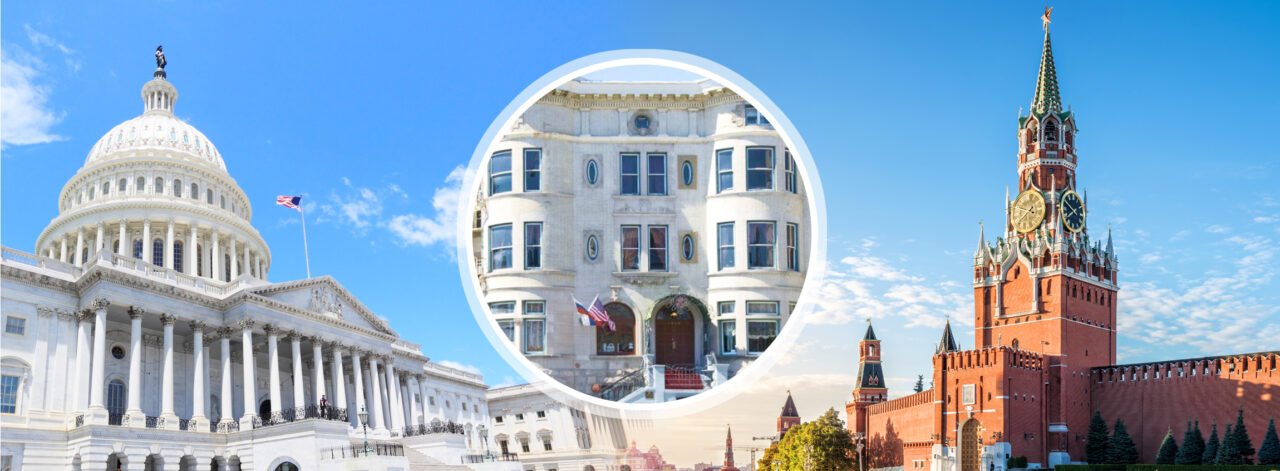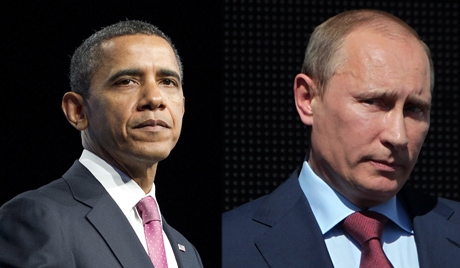
 The September G20 summit in St. Petersburg is approaching fast. All the media attention will be focused, of course, not so much on the boring substance of the meeting's agenda but on the welcoming shake-hands moment between the summit host Vladimir Putin and U.S. President Barack Obama.
The September G20 summit in St. Petersburg is approaching fast. All the media attention will be focused, of course, not so much on the boring substance of the meeting's agenda but on the welcoming shake-hands moment between the summit host Vladimir Putin and U.S. President Barack Obama.As we know, after canceling the pre-G20 summit in Moscow Obama decided to take a "pause" in his dealing with his Russian counterpart.
Some pundits with well-known anti-Putin views were obviously delighted. Some even suggested that Obama should skip the St. Petersburg summit as well and send Vice-President Biden instead. Some folks with a great sense of humor went even further, suggesting that if the U.S. has nothing to say to Putin then why not cut the middle-man and send U.S. comedian Jay Leno to this meeting, referring, of course, to the fact that for some strange reason Obama first confirmed his trip to St. Petersburg on Leno's show.
Is it really true that there is nothing for Obama to discuss with Putin? Indeed, some foreign policy analysts are saying that Russia is little more than a distraction for the U.S., that it has nothing America wants or needs. Otherwise why would a responsible American leader decide to skip the important summit? On the other hand, haven't we heard again and again from the White House administration and Obama himself that no serious international security problem can be solved without Russia?
If this is so, and especially in view of the extremely dangerous situation in the Middle East where the U.S. Navy is already in a position to strike at Syria without a UN Security Council resolution, mustn't the two leaders urgently get together and talk?
Moscow is definitely ready to do that, and both Putin's foreign affairs adviser Yury Ushakov and foreign minister Sergei Lavrov are going out of their way to be conciliatory, saying that U.S. - Russia relations are too important and that pushing them into a dead end is out of the question.
However, at the moment Washington does not seem to be interested in talking to Moscow. More than that, in view of the grave escalation in the Syria conflict, it looks like Obama might actually skip the St. Petersburg summit after all.
The obvious questions then are:
1. Is it really true that, except for the Afghanistan transit route, Russia does not really matter to America, and that Obama should not waste his time on meetings with Putin?
2. If, on the other hand, Russia does matter, what is the positive summit agenda that would justify such a meeting?
 The topic for the
Discussion Panel is provided by Edward Lozansky,
The topic for the
Discussion Panel is provided by Edward Lozansky,
Edward Lozansky is president of the American University in Moscow, Professor of World Politics at Moscow Sate University
Expert Panel Contributions
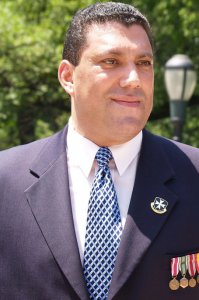 US-Russia
Relations: Petulance versus Diplomacy
US-Russia
Relations: Petulance versus Diplomacy
Anthony Mele
Anthony Mele is U.S. Army veteran and President of AMI GLOBAL SECURITY, LLC
President Obama's knee jerk announcement that he would not meet with President Putin is another indication there is no policy that comes before his personal feelings. The "Snowden affair" for example was a Chess board game of moves and counter-moves. Obama blundered into being check-mated, moving with ease from incompetence to embarrassment, ending in the equivalent to amateur hour at the Apollo.
Russia does not matter to President Obama, personally and politically, because he is contemptuous of any leader who would upstage him, as President Putin does consistently, as reported through the eyes of the world press. Also, President Obama was demonstrably and painfully unprepared for negotiating directly with his Russian counter-parts, anytime it requires him to go off script.
The "Hot-Mike" moment now infamous for demoting President Mednev to 'messenger boy' when he had him convey an ill-conceived, thought bubble of pliability after the 2012 elections. Thereby exhibiting that personal politics alone, drive affairs of state. President Obama was caught on the microphone, crafting foreign policy on the fly, on his political time-table and not soberly thought out within the context of American interest, at the speed of Russian/American trade business or even geo-political realities of the hour.
On Syria, the Russians have shared enough intelligence with the American military and intelligence community, while putting their public prestige on the line, to categorically state that chemical weapons were not launched by President Assad. They have revealed the terrorist affiliations of the Al-Nusra Brigade, dispelling the American media spin of word association, romantically calling them "rebels".
When in matter of fact, they are foreign mercenaries, that invaded and infiltrated Syria for the express purpose of supplanting the religiously tolerant Alawite Syrian government with a murderous gang of cut-throats, dreaming of a religiously intolerant, regional Caliphate.
Most disturbing is the disconnect that fails to view these groups labeled 'rebels' as spawn of the Muslim Brotherhood. Much like the Russian, egg within an egg, Al-qaeda, Al-Nusra, etc, all fit one in the other, snug in the belly of the Muslim Brotherhood.
Any talk of an American military strike against the sovereign Syrian people, under the guises of defending them from Assad, who is in turn protecting his population from foreign incursion is a recipe for disaster. This would be an act of war. Only the US Congress can declare war in the name of the American people. The Russians have stated they have no great love for Assad but will not aid in his demise at the hands of Al-Nusra. Cold wars can become hot wars just like this.
Washington and Moscow have much to gain by way of trade negotiations and opening up markets. Washington and Moscow have serious long term considerations when it comes to the emerging economic realities of China, as well as politically and militarily.
Political observers and contemporary historians will equally blame Moscow and Washington, Putin and Obama, because when one of the two leaders are behaving like a predictably petulant child, then the responsibility falls to the remaining adult in the room, to conclude that American and Russian long term strategic interest in business and national security, are not at odds with each other, but in actuality compatible and symbiotic.
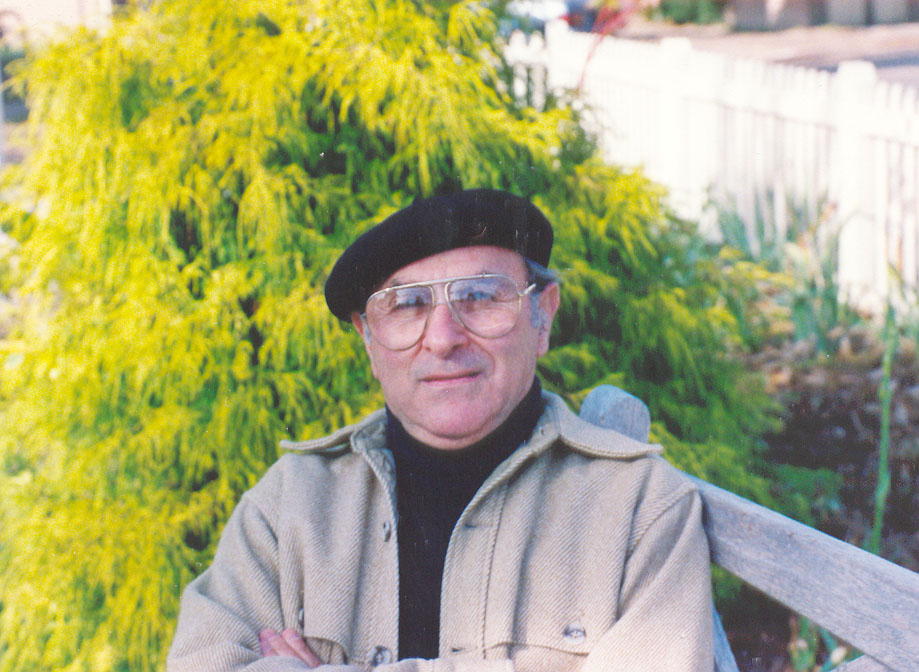 IS THERE AN AGENDA
FOR A U.S.-RUSSIA SUMMIT?
IS THERE AN AGENDA
FOR A U.S.-RUSSIA SUMMIT?
Frank Shatz
Frank Shatz is a Columnist for the The Virginia Gazette
Solutions of problems between people and nations are found through interactions, not a tit-for-tat policy.
Could the Syrian crisis escalate into a confrontation between the United States and Russia that would be comparable to the Cuban missile crisis?
Most experts doubt it. But many of them believe that if a diplomatic compromise is not found, a military intervention by theUnited Stateswould poison the relationship between theU. S.andRussiafor years to come.
Thus, there is indeed an agenda for a one-on-one meeting between President Obama and President Putin. And it is above all, finding a solution to the Syrian crisis.
It is well known, there is no fondness inRussiafor Syrian President Bashar al-Assad, or his regime. WhatRussiais trying to do is to protect its naval facility in Tartus.
According to Wikipedia, it is the last Russian military facility outside the formerSoviet Unionand the only Mediterranean repair and replenishment port, sparingRussia’s warship from the trip back to theirBlack Seabases through the Turkish straits.
There is no economic incentive forRussiato protect the al-Assad regime. It was forced to forgiveSyriathree quarters of its #13.4 billion Soviet-era debt. The only reason for protecting the regime is to maintain inSyriaits naval facility.
What is needed is a creative diplomatic solution. To assureRussiathat any new Syrian regime, that doesn’t include President al-Assad, would honor the commitment to permit Russian naval presence at Tartus.
It is only President Obama who can deliver this message, credibly, to President Putin.
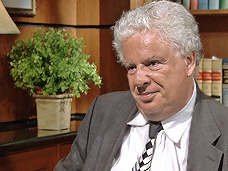 Urgent Need for
Superpower Summit
Urgent Need for
Superpower Summit
Martin Sieff
Martin Sieff is a senior fellow at the American University in Moscow and Chief Global Analyst at The Globalist. His most recent book isThat Should Still Be Us: How Thomas Friedman’s Flat World Myths are Keeping Us Flat on Our Backs
Now that Russia and China have warned the United States against militarily intervening on behalf of the Syrian rebels, the need for a separate superpower summit between Barack Obama and Vladimir Putin is more urgent than ever.
The dangers of a super-collision over a Middle East crisis are greater than they have been in exactly 40 years since U.S. President Richard Nixon ordered all global U.S. military forces moved to an alert status of DefCon One to deter Soviet President Leonid Brezhnev from sending Soviet forces to intervene in the 1973 Yom Kippur War, or War of Ramadan, between Israel and Egypt and Syria.
Today, it is the United States, not the Soviet Union or Russia, which is gearing up to potentially plunge directly into a bloody Middle East conflict. On August 26, Russian presidential spokesman Alexander Lukashevich issued a statement warning, "Attempts to bypass the Security Council, once again to create artificial groundless excuses for a military intervention in the region are fraught with new suffering in Syria and catastrophic consequences for other countries of the Middle East and North Africa.”
Yet, also on August 26, it was the United States, not Russia that announced it was putting off a scheduled August 28 meeting at The Hague on Syria with Russian diplomats. And it was Russia that responded by expressing regret about that decision. The two sides had been due to meet in The Hagueon Wednesdayto discuss setting up an international conference on finding a political solution to the crisis.
Yet instead, we see Obama administration policymakers obsessively sticking to their simplistic, meaningless and extremely dangerous idee fixe of a "pause” in U.S.-Russia relations. They have forgotten Winston Churchill’s dictum that "jaw, jaw” is always better than "war, war.”
The idea that there is nothing constructive to discuss between Obama and Putin has become another obsessive fantasy of U Washington policymakers and pundits. It is now almost impossible to find any quotable talking head who does not support it.
Yet the number of subjects where the United States needs to constructively engage Russia is long and urgent: Syria obviously heads it.
The emergence of the new, more moderate Iranian president offers a major opportunity to craft a new joint U.S-Russian initiative. Cooperation between the United States and Russia against Islamist terrorism, especially in Chechnya and Central Asia, could and should be rapidly expanded.
The two nations also need to work out a joint strategy to protect Christian communities in Egypt and Syria threatened by the upsurges in populist Islamist violence in both countries. Russia as an Orthodox Christian nation feels especial concern and there is much that the United States could do with it.
Since U.S. and NATO military forces within Europe are at such low levels, it also makes enormous sense in the U.S. and European interest to seek to defuse sources of tension and negotiate new informal understandings at least about security coordination and force levels on both sides in Europe.
The hard truth remains, as President Obama has previous acknowledged, that no serious international security problem can be solved without Russia. Now more than ever, with U.S. warships positioning to strike at Syria without UN Security Council resolution, it is more urgent than ever that the two nuclear superpower leaders need to urgently sit down and talk.
Moscow is definitely ready to do that andboth Putin's foreign affairs adviser Yury Ushakov and foreign minister Sergei Lavrov have been rightly making exceptional efforts to send conciliatory signals to Washington. Both of them have repeatedly stressed that U.S. - Russia relations are too important and it would be impossible topush them intoa dead end.
Yet Washington clearly is not interested in talking to Moscow, and, moreover, in view of the grave escalation of the Syria conflict, Obama might actually skip the St. Petersburg G-20 summit completely, which would be another grave humiliation for Russia.
1,950 years ago, the Emperor Nero fiddled while Rome burned. Now, intoxicated their own ignorance and self-righteousness, a new generation of US policymakers and pundits are recklessly provoking the most dangerous East-West confrontation in the Middle East in 40 years: And they have no idea they are doing it.
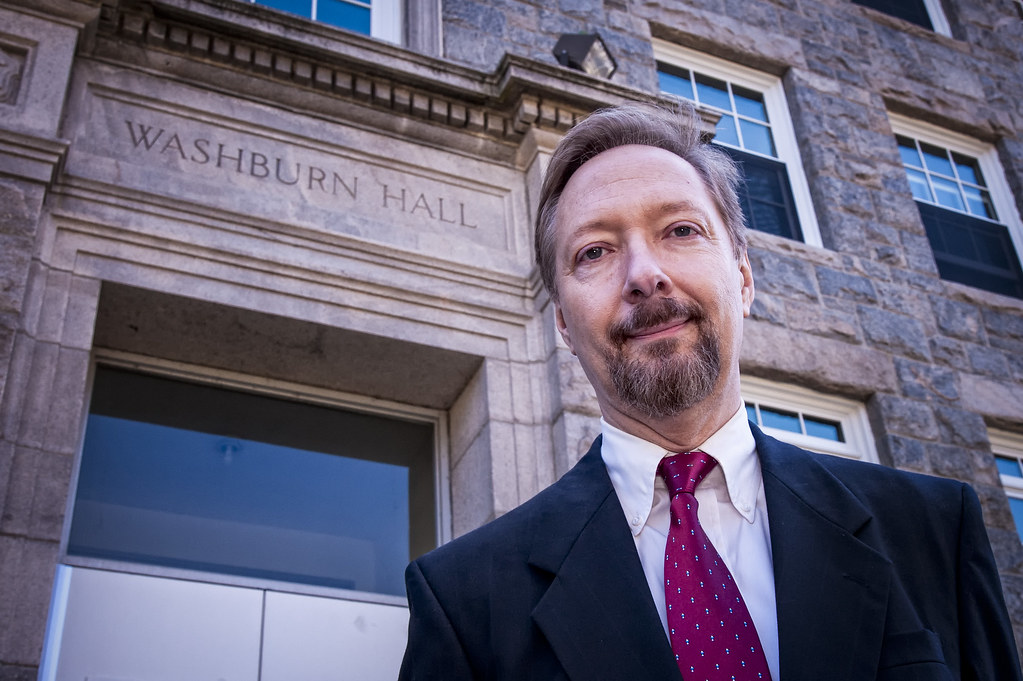 The
G20 Summit and its Global Consequences
The
G20 Summit and its Global Consequences
Nicolai Petro
Nicolai Petro is Professorof Political Science at University of Rhode Island
The G20 summit in St. Petersburg was supposed to focus on creating jobs and improving the international economic climate. But while Russia, the host, is officially sticking with this agenda, it is now overshadowed by events in Syria.
On the eve of this summit, in a highly unusual display of parliamentary democracy that breaks centuries of precedent, the British House of Commons thwarted Prime Minister Cameron’s efforts to take his country to war. This singular act has radically altered the dynamics of the upcoming summit. The United States, which had hoped to lead the West in a united front against the skeptics in St. Petersburg, now finds itself bogged down in efforts to defend unilateral action.
Throughout the Syrian crisis Russia’s primary purpose has been to prevent anything that would further destabilize the regional situation. For the United States and its allies, however, this is only an afterthought. Having thrown their support behind the Syrian rebels, and openly demanded the removal of President Assad, the United States is now forced to argue that any alternative to his regime is better than Assad remaining in power, even though this is clearly not the case. The United States’ quandary is deepened by the fact that the Assad regime now seems to be gaining the upper hand in the conflict.
Once again the U.S. government has backed itself into a corner where in order for its word to be "credible” it now has to "do something.” Secretary of State Kerry has invoked the well worn refrain that U.S. credibility is essential for world peace. The unspoken assumption, of course, is that it is the United States, not the United Nations, that is the proper arbiter and guarantor of world peace.
While this assumption is never seriously questioned in Washington, it is increasingly challenged in other capitals. First, the assumption that the world order being advocated by the United States is objectively benign is under scrutiny. Second, the assumption that the United States has the capacity to manage such a world order, either financially or militarily, is increasingly questioned. Russia and China may be the two most powerful nations to vocally question these assumptions, but there is little doubt that they have the tacit support of a solid majority of the international community, outside of NATO. This is one reason why some pundits argue that NATO is to be preferred to the United Nations as a mechanism for imposing international order.
There is a fundamental conflict of visions here that no amount of technical or diplomatic cooperation among states can overcome. Either the United States and its closest NATO allies succeed in imposing their view of international order, which will have to be enforced by the United States; or, the BRICS nations, with Russia and China in the lead, will succeed in imposing their view of a more diffuse international order in which the United States is but one voice, and is ultimately subservient to the will of the global majority expressed through the United Nations.
As Western political leaders blithely assert their right to act on behalf of the rest of the world, their debates are increasingly divorced from the reality, namely that America is entering a period in which its global capability is shrinking compared to that of other nations. The G20 thus provides a valuable forum for heeding the views of the global majority, before that majority feels the need to impose them.
 Unfortunately Obama is not Franklin D. Roosevelt.
Unfortunately Obama is not Franklin D. Roosevelt.
Alexandre Strokanov
Professor of History, Chair of Social Science Department, Director of Institute of Russian Language, History and Culture, Lyndon State College, Lyndonville, Vermont
At the end of November this year the world will commemorate 70th Anniversary of the Tehran Conference, the first meeting of leaders of Great Britain, Soviet Union and the United States in 1943. Symbolism is very important in history and politics. Seventy years ago, three leaders, despite tremendous differences that divided them, found enough wisdom to understand the absolute necessity in direct talk and necessity of cooperation. Today Russia and the United States share much more in common, but have not less important tasks in front of them to debate in an open and honest way, as the "big three" did seventy years ago.
But to a great disappointment of many people, and not just in the USA but around the world, Barak Hussein Obama openly demonstrated that he is not Franklin Delano Roosevelt. Obama said on April 5, 2009 at Hradcany Square in Prague, that"(t)o denounce or shrug off a call for cooperation is an easy but also a cowardly thing to do. That's how wars begin. That's where human progress ends."His recent decision about the summit in Moscow is in direct contradiction with his words.
Obama also said in his speech in Cairo University, Egypt on 4 June 2009:"There must be a sustained effort to listen to each other; to learn from each other; to respect one another; and to seek common ground. Given our interdependence, any world order that elevates one nation or group of people over another will inevitably fail."Good words, but bad deeds, this is so typical for Barak Hussein Obama. As Benjamin Franklin pointed once, "Well done is better than well said.” You can’t say it about Obama.
Now about questions that Obama and Putin could discuss.
1. After recent events in Egypt, Syria, Lebanon, Iraq, Tunisia and Libya it is quite clear that the whole region is sinking into largest instability since the end of the World War I. This development may have absolutely unpredictable consequences for American and Russian interests there. We are witnessing not a triumph of democracy but sectarian and religious conflicts and collapse of states. Presidents should discuss not just Syrian Civil war but the whole regional events in complex. The obvious failure of the United States, together with other NATO countries, to make Afghanistan or Iraq better places to live should teach a lesson that just military presence or military strikes, regardless how large or small they are, can't solve problems in Islamic countries. There is a necessity in a new strategy in dealing with this part of the world: cultural, economic and political. Unfortunately, Obama's administration demonstrates luck of strategic vision in the region, and it is not willing to hear their opponents, still preferring to act unilaterally and relying primarily on military force.
2. Next, economic relations between the United States and Russia. It is again symbolic that recently Chinese ship is going to open Northern route, connecting Asian and European markets through Arctic Ocean. The United States and Russia have tremendous opportunities in economic cooperation, the development of Russian Far East and new routes of transportation. But again, such cooperation requires a new strategic vision of economic development which Obama's administration simply does not have.
3. Finally, it is the time to begin a serious conversation about non-visa regime between Russia and United States. Today, Russian visa for Americans and American visa for Russians are two most expensive visas in the world. Non-visa regime will allow to people from both countries to visit, work together and understand each other better. It is in particular important because media in both countries often creates very biased image of the opposite side. The recent portrayal of the situation with LGBT community in Russia and attack in the US mainstream media against 2014 Winter Olympics in Sochi are two most fresh examples of it. However, it is unlikely that Obama's administration is ready for such talks.
This is very sad to admit that Obama unfortunately is not Franklin D. Roosevelt.



_jpg/250px-ElbeDay1945_(NARA_ww2-121).jpg)
